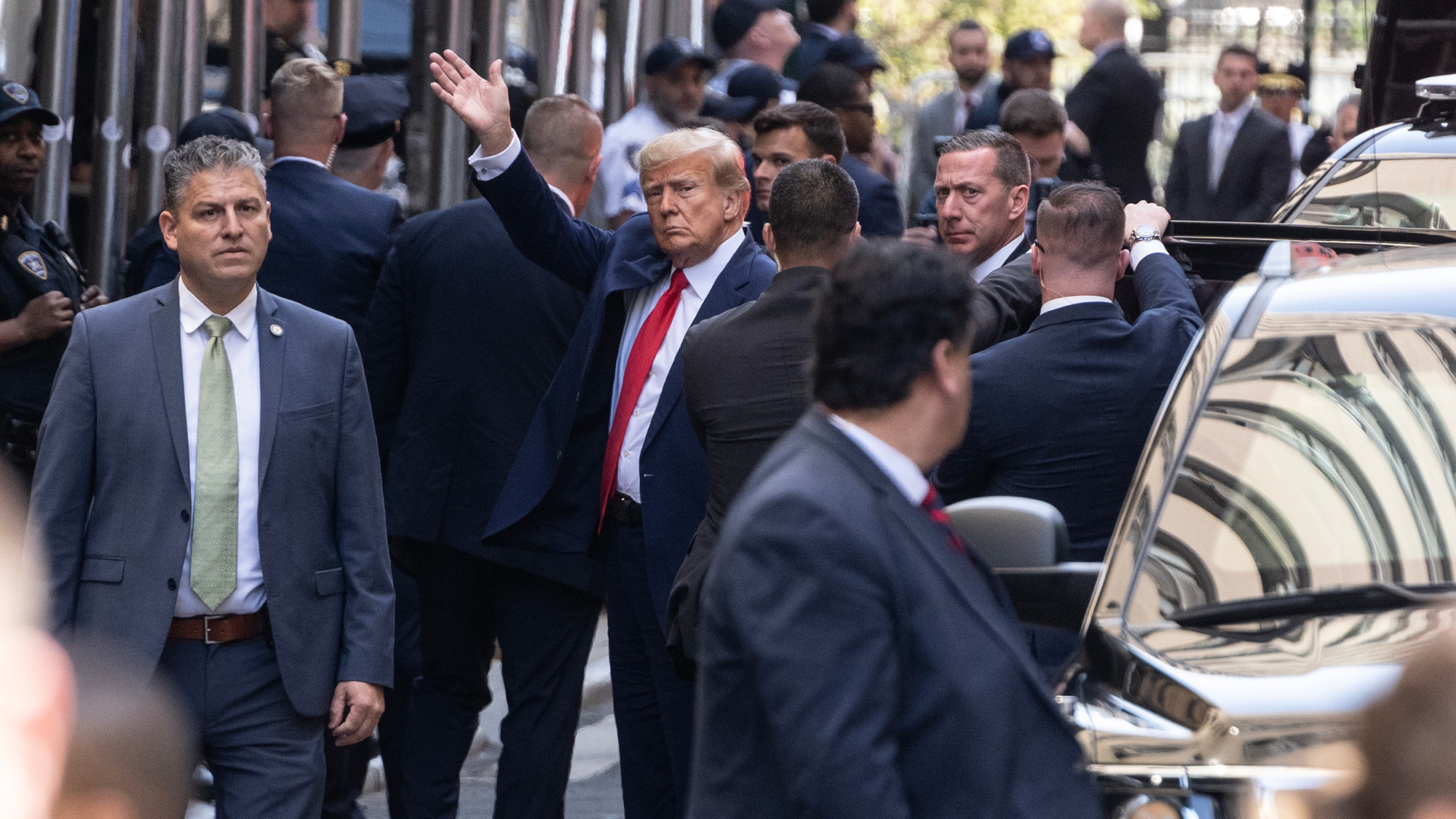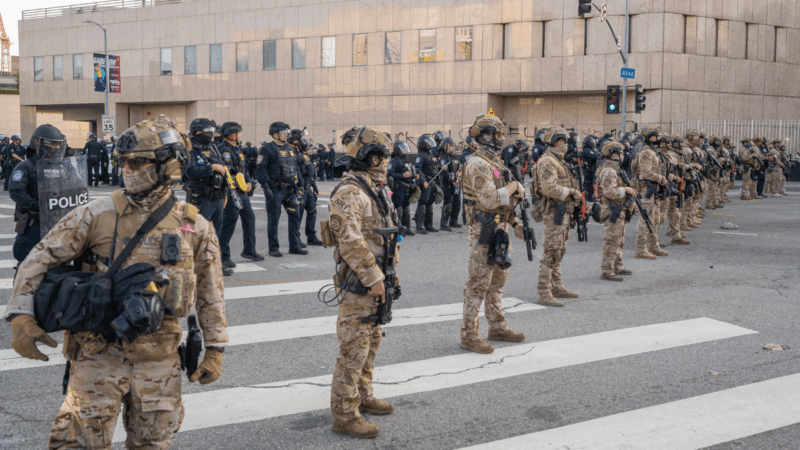Trump “gag” order: More at stake than the First Amendment
- November 8, 2023
Protecting the criminal justice system from Trump’s attempts to undermine it does not amount to “election interference,” but Judge Chutkan should consider moving up the trial date

Donald Trump is the rare criminal defendant who has no interest in exercising his right to remain silent. To the contrary, one of Trump’s primary defense strategies is to use his criminal indictments as fodder for his presidential campaign by attacking the prosecutions — including the prosecutors, judges, witnesses, and court employees — as politically motivated, and portraying himself (and by extension his supporters) as the victim of “weaponized justice.”
In Trump’s telling, a variety of federal, state, and private actors — including the United States Department of Justice, at least one federal judge, and four grand juries — have teamed up to engage in “election interference,” by seeking to curtail, disrupt, and, ultimately, disable Trump’s presidential campaign because of their collective politically-motivated animus against him. These claims turn reality on its head.
In addition to the indictments themselves, a central focus of Trump’s election interference claims is a limited “gag” order imposed on him by District Court Judge Tanya Chutkan in the federal election conspiracy case (the first such order in the criminal cases, but maybe not the last). The order is aimed at preventing Trump from intimidating and potentially endangering the human beings who ensure the functioning of the criminal justice system. Accordingly, it prohibits personal attacks on individuals, such as Trump calling Special Counsel Jack Smith “deranged” and referring to Smith’s prosecution team as “thugs,” and announcing that General Mark Milley, a witness in the case, should be executed for treason. True to form, Trump has claimed that the order is a nefarious effort by the court and DOJ — and even President Biden — to silence his campaign speech, thus violating his First Amendment rights. And he has already filed his appeal.
But Trump is wrong. As explained below, the court is just as obligated to protect the legal process as Trump’s constitutional rights; the risk of a chilling effect on the proceedings from Trump’s personal attacks is well-established; and, while placing some restrictions on the more dangerous aspects of Trump’s speech, the court has given Trump wide latitude to criticize the government and even lie about the process.
A limited gag order, prompted by Trump’s own behavior, is neither election interference nor an attempt by either the court or the Special Counsel’s office to impede Trump’s campaign. It is an effort to protect the integrity of court proceedings and the public interest in the fair administration of justice while also respecting defendant Trump’s rights. A justice system based on the rule of law — which is critical to healthy democratic government — cannot function if the people who staff the legal system are constantly facing the threat of harassment and intimidation, which they undisputedly are in the federal election conspiracy case.
So while the appellate court considers Judge Chutkan’s order, Trump’s freedom of speech is far from the only important issue at stake. The court’s obligation to protect the proceedings will continue even if Trump’s challenge to the gag order is successful. Indeed, it may be that Judge Chutkan can most effectively protect this process by moving up Trump’s trial date and ensuring a speedy resolution of the case.
Courts are obligated to protect the fair administration of justice
In a criminal case, the defendant’s constitutional rights are paramount and both the court and prosecutors are obligated to protect those rights. However, the public — on whose behalf criminal laws are enforced — also has an interest in the fair administration of justice. Courts have long held that “[t]he public has an overriding interest that justice be done in a controversy between the government and individuals and has the right to demand and expect ‘fair trials designed to end in just judgments.’” This means that judges have broad latitude to protect the integrity of judicial proceedings, which includes the safety of court personnel, witnesses, and jurors.
Furthermore, the law is clear that while Trump does not have greater rights than other people because he is a political candidate, he is subject to greater limitations because he is a criminal defendant who has been indicted by multiple grand juries of his peers and is presently free on bond. Trump’s status as a criminal defendant means he falls squarely within courts’ duty and ability to protect the legal system. As the Supreme Court explained, “The finding of probable cause conveys power to try, and the power to try imports of necessity the power to assure that the processes of justice will not be evaded or obstructed.”
Read more: Investigating and Prosecuting Political Leaders in a Democracy Read more: Investigating and Prosecuting Political Leaders in a Democracy
Trump’s status as a criminal defendant also has implications for the scope of his constitutional rights. Under the Bail Reform Act, federal judges have the authority to impose conditions of release that will “assure . . . the safety of any other person or the community,” and wide latitude to do so. And indeed, a federal magistrate judge in Trump’s election conspiracy case imposed conditions at Trump’s arraignment, ordering him not to “communicate about the facts of the case with any individual known to be a witness, except with counsel or the presence of counsel.”
He is also prohibited from violating any federal, local, or state laws. Among the federal laws that govern Trump’s conduct is the federal witness tampering statute, which criminalizes “corruptly persuading” a witness for the purpose of influencing or causing them to withhold their testimony in an official proceeding. Violating conditions of release can result in the revocation of bond, pre-trial detention, and prosecution for contempt.
This was exactly the legal landscape Judge Chutkan took account of when she issued a limited order curtailing very specific aspects of Trump’s speech. As she wrote in explanation of her decision, citing the Supreme Court’s binding decision in Sheppard v. Maxwell: “This court ‘must take such steps by rule and regulation that will protect [its] processes from prejudicial outside interferences.’ The First Amendment does not override that obligation.” In this case, Trump has decided to make himself the kind of “prejudicial outside interference” the Supreme Court warned about.
Substantial evidence shows that Trump’s personal attacks threaten to chill the legal process
Democracy is rooted in the idea that ours is a government “of laws, not of men” and that our legal system should enforce those laws in a just and equitable manner. This system, in turn, requires a host of human actors to investigate and prosecute crimes, defend the persons accused, administer the courts, testify as witnesses, and serve as jurors. These human beings cannot perform their jobs if they are subject to harassment, intimidation, and violence (or the reasonable fear of it). And Trump’s past actions, and his supporters’ reactions to them, have had an unmistakable effect on other key actors in our democracy.
A short list of such reactions by supporters includes sending pipe bombs to a media company frequently disparaged by Trump, as well as various Democrats; storming an Ohio FBI facility following the execution of a search warrant at Trump’s Florida residence; stalking former President Obama at his home after Trump published his address on social media; and threatening election workers and officials who certified the 2020 election results Trump claimed were fraudulent. Of course, the most prominent example of Trump’s ability to instigate violence was the coup attempt on January 6, 2021.
The court found that Trump’s inflammatory personal attacks on prosecutors and the judge, in this case and others, have inspired threats of violence against them. Indeed, earlier this year a supporter reportedly mailed a death threat to Manhattan District Attorney Alvin Bragg on the same day that Trump used social media to warn of “potential death & destruction” stemming from “a false charge” against him. A few months later, a woman was arrested for threatening Judge Chutkan, her family, and “anyone who went after former President Trump.”
Trump’s actions already have had a discernible chilling effect on key actors — from everyday citizens to the most powerful people in the country — who carry out our democratic processes. There is a national shortage of election workers owing to the threats and violence inspired at least in part by Trump. Republican members of Congress reportedly voted against certifying the 2020 election results, and later declined to vote for Trump’s impeachment and conviction following the events of January 6, out of fear of violent retribution. Judges in other cases have expressed concern that jurors will be harassed if Trump or his supporters have access to their personal information.
Ultimately, concerns about the chilling effect on critical democratic actors were the deciding factor that led Judge Chutkan to impose the limited gag order on Trump in the election interference conspiracy case. As she said in her order, the restrictions on Trump are necessary because Trump’s inflammatory personal attacks “pose a significant and immediate risk that (1) witnesses will be intimidated or otherwise unduly influenced by the prospect of being themselves targeted for harassment or threats; and (2) attorneys, public servants, and other court staff will themselves become targets for threats and harassment.”
Read more: Four misconceptions about Trump’s federal January 6th indictment Read more: Four misconceptions about Trump’s federal January 6th indictment
And while some First Amendment advocates have criticized Judge Chutkan’s order on the ground that the prosecutors and former high-ranking government officials Trump has attacked are not likely to be intimidated by him, it is important to note that not all the witnesses in the January 6 cases are prominent citizens, nor are the court personnel and jurors who are vital to the process. Moreover, while the immediate risk is to the individuals involved in the proceedings, Trump’s actions also threaten the stability and integrity of the system more broadly.
Judge Chutkan has given Trump substantial latitude to criticize the government
Further belying any intent to interfere with Trump’s campaign, Judge Chutkan has acknowledged her legal obligation to protect Trump’s First Amendment rights and given him a wide berth to speak critically about the government and its case against him.
First, she disagreed with the government’s argument that Trump’s attacks — even false statements about the case — had to be suppressed in order to avoid poisoning the jury pool. To that end, she did not restrict Trump from claiming that the prosecution is politically motivated or from claiming — falsely — that it is being directed by President Biden.
Judge Chutkan also did not prohibit Trump from attacking her, personally, but she did prohibit attacks on court staff.
Trump also can attack the government and the prosecutors freely in his legal filings, as he did when he filed his motion to dismiss the indictment on the ground that the prosecution is selective and vindictive. So the gag order contains no substantive restriction on the content of Trump’s speech, only a limitation on his inflammatory name-calling of individual actors and tactics, like posting those individuals’ home addresses and impugning their families. As the government points out, this falls far short of the blanket gag orders imposed on many other criminal defendants. Indeed, many well-known defendants have been on the receiving end of such orders, including Trump ally Roger Stone, Oklahoma City bombing accomplice Terry Nichols, and Symbionese Liberation Army bomber Sara Jane Olson.
To be sure, the First Amendment issues implicated by the gag order are complex and the precise standard that should govern the limits a court can place on a criminal defendant’s speech has not yet been squarely addressed by the Supreme Court. But whatever the standard, there is no evidence in this case (or any other prosecution) that Trump is being treated unfairly because of his candidacy.
Even if the appellate courts overturn Judge Chutkan’s gag order, the court remains obligated to protect the integrity of the process and is not powerless to do so
Trump has filed an appeal of Judge Chutkan’s limited gag order on First Amendment grounds, as he is permitted to do. If the appellate courts uphold the order, Trump will have no choice but to abide by it or face sanction, which could include revoking his bond. However, even if the appellate courts rule in Trump’s favor and overturn or modify Judge Chutkan’s order, that will not change either the fact that Trump’s intimidation tactics are a danger to the judicial process or the court’s obligation to protect the proceedings. It will mean only that the court cannot address them through her current gag order.
What the court can do is limit the damage Trump inflicts by moving up the trial date and bringing resolution to the question of whether he is guilty of criminal conduct in his effort to overturn the 2020 election results. Doing so would achieve two things: minimize the impediments on Trump’s ability to campaign for president due to the ongoing prosecution (i.e., if he is acquitted, he can move forward without restrictions, at least from this federal case); and limit the amount of time his words potentially chill the actors in the process. What’s more, it would further the public’s right to fair enforcement of the laws and complete information about a presidential candidate by resolving the question of whether Trump is guilty — or not — of crimes for attempting to overturn the 2020 election. The court has already suggested this option and the government has indicated that it is ready to proceed to trial and has provided Trump with the information he needs to defend himself.
Efforts to protect the integrity of our legal system are essential to protecting our democracy and do not become “election interference” simply because the defendant has chosen to seek political office. Suggesting otherwise validates the strategy of running for office to avoid prosecution-related restrictions. The law requires prosecutors and courts to strike a balance to protect both the public’s and the defendant’s rights. And both have made good-faith efforts to strike that balance in the federal election conspiracy case, granting Trump leeway to attack and even lie about the trial process that other defendants have not enjoyed.
Should the appellate courts determine that the First Amendment limits the trial court’s options to curtail Trump’s speech in connection with his prosecution, or if Trump forces the court’s hand by continuing to make prohibited statements under a valid gag order, the court’s best choice — but not its only one — to balance all of the interests at stake may be to ensure the speediest possible resolution of the case.
Related Content
Join Us.
Building a stronger, more resilient democracy is possible, but we can’t do it alone. Become part of the fight today.
Donate
Sign Up for Updates Sign Up for Updates
Explore Careers Explore Careers
How to Protect Democracy How to Protect Democracy


